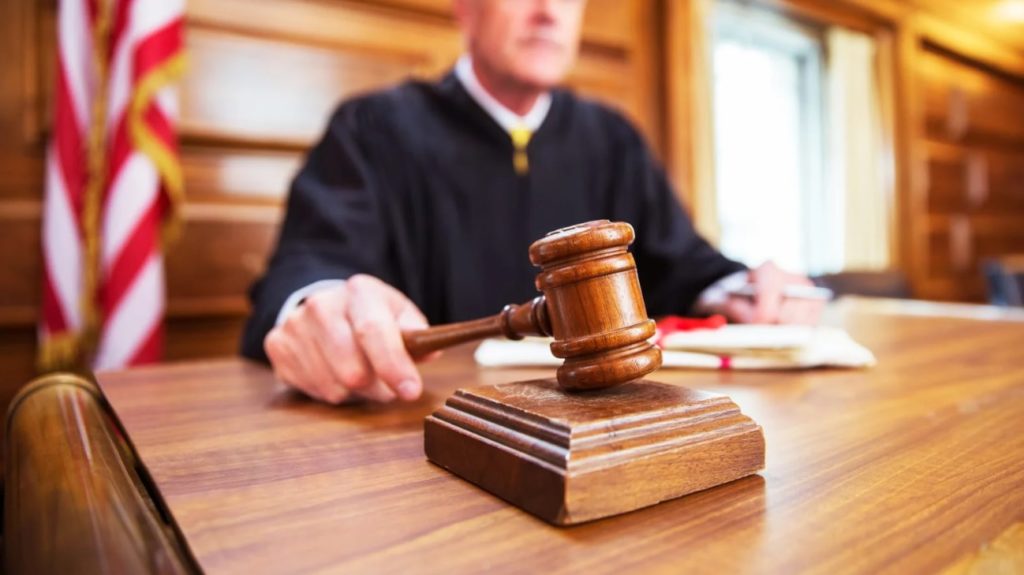Advertisement
The Las Vegas Review-Journal is on to something; something important and all too often overlooked by voters: electing the judges that judge us.
In an editorial on Thursday the paper noted…
“Southern Nevada voters won’t head to the polls for a general election until next November, but it’s wise to stay educated about potential issues and candidates.
“While information on those seeking national and statewide office is often readily available, voters have far fewer resources when it comes to down-ticket contests, particularly judicial races.
“To help, the Review-Journal this year revived its ‘Judging the Judges’ survey, which was published this week.”
Indeed, many voters are starving for just this kind of help.
“I think this is a very good idea,” wrote Miguel Reyes-Cuerva in a letter-to-the-editor published by the RJ on Tuesday. “Judges are elected officials who we vote for, but we really don’t know much about.”
However, the “Judging the Judges” survey itself has some serious flaws.
Let’s start with the fact that the survey was essentially an anonymous email poll of LAWYERS asking whether or not incumbent judges should be retained – judges who may very well have ruled against them in the past.
I think you can readily see the problem here.
That’s kinda like doing a survey of football fans in New York, Miami, Chicago, Denver and Los Angeles and asking whether or not the New England Patriots should retain Tom Brady as the team’s quarterback.
There’s just too much potential for bias and conflict of interest.
In fact, about the only thing worse than asking lawyers to rate judges would be to do the same survey of prisoners behind bars.
But before going further, let’s look at the survey universe itself.
According to the State Bar of Nevada’s 2018 Annual Report, there were 9,056 active attorneys practicing in the state. 47 percent of them are in Clark County, 17 percent in Washoe County, 30 percent out-of-state and the rest in rural counties.
And of those 9,056 licensed attorneys in Nevada, the RJ invited about 5,200 to participate in its survey. And of those who were invited to participate, 674 responded.
Now bear in mind, the RJ itself says “retention votes are meant to mock an election.” And in this case, the election turnout rate was under 13 percent.
That’s only slightly higher than the turnout rate for the 2019 municipal races in Clark County, which Review-Journal reporter Shea Johnson described as “paltry.”
And in a June 12 editorial, the RJ bemoaned the “sorry numbers” for that election, noting, accurately, that “In a low-turnout race, after all, the result can be a crapshoot.”
So by the RJ’s own standards, its “Judging the Judges” retention survey, with an overall participation rate of less than 13 percent, must be characterized as a similar “crapshoot.”
But it’s even worse than that.
While 674 attorneys participated overall, less than 300 actually voted in any given judicial evaluation. For example, in rating Nevada Supreme Court Justice Elissa Cadish, only 248 attorneys cast ballots.
That’s less than 5 percent!
And that’s on the HIGH end. Get this…
A majority of participants, 59 percent, voted NOT to retain North Las Vegas Municipal Judge Sean Hoeffgen.
But only 29 lawyers voted. That’s not even 1 percent!
“The number of attorneys who evaluated Hoeffgen is small,” the RJ acknowledged. “But the survey is still a valid way to measure how that anonymous group feels Hoeffgen is doing, according to Rebecca Gill, a UNLV professor and the survey’s project director.”
Oh, puh-lease.
The dismal participation rate is bad enough to cast doubt on the validity. But the survey itself – which was conducted by Ms. Gill, not the RJ – is deeply, deeply flawed. Which I’ll get into in Part III.
Don’t touch that dial!
Advertisement
Subscribe Free By Email

Looking for the best in breaking news and conservative views? Let Chuck do all the work for you! Subscribe to his FREE "Muth's Truths" e-newsletter.



